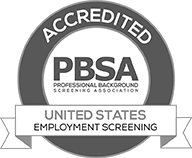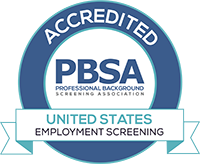BLOG
What Employers Should Know About Expunged Criminal Records
October 17, 2017
Employers order background checks to learn more about applicants and find out if they have criminal records. But what happens if a record has been expunged?
Some Laws About Expunged Records Are Changing
The Society for Human Resource Management (SHRM) published an article in which they covered this topic. They interviewed Sage Knauft, a partner at a California law firm. He provided advice to employers about how to protect themselves if they encounter a scenario in which a person they screened has an expunged record.
This is something that could become more common over the next few years. Multiple states currently allow expungements for non-convictions. Some elected officials are looking into options to create or expand similar policies.
For example, Washington D.C. Mayor Muriel Brown proposed that if an arrest did not result in a conviction, then that record should be expunged. This concept is in line with what is often called the Second Chance policy - an effort to "limit employers' access to criminal records of arrests without convictions, minor misdemeanors and even low-level felonies, to improve ex-offenders' job prospects."
The Push to Expunge Criminal Records
In his SHRM interview, Knauft noted that there is a nationwide push to allow people who were not convicted, or who had minor convictions, to expunge their criminal records. He also suggested that the United States has a high incarceration rate and nearly one-third of the population has been arrested.
Job seekers who have any type of arrest or criminal record may be automatically disqualified by potential employers. Lawmakers have been taking steps to help these people find employment. One of the most notable is the Ban The Box movement, which prohibits employers from asking about criminal records on job applications.
Allowing non-conviction arrest records to be expunged could be another big step towards helping people to find jobs. The primary goal is to prevent employers from rejecting applicants who were never convicted or who had minor convictions that should not prevent them from obtaining employment.
How This Could Affect Employers
If new laws are passed to allow expungement, then employers will be responsible for complying. These laws may vary by state, so the policies employers must follow could differ by location.
In the SHRM interview, Knauft said that he believes applicants will have cause to file lawsuits if they are denied employment based on arrest or criminal records that were expunged. He emphasized the importance of only using accurate, up-to-date and reportable data when making hiring decisions. As existing laws change and new ones are implemented, the onus is on the employer to update their policies accordingly.
What to Look For in a Background Check Provider
Knauft stressed that it is crucial to work with reputable Consumer Reporting Agencies. Employers should look for background check providers that only use reportable data in their reports.
Backgrounds Online is a Consumer Reporting Agency that has provided compliant background checks for more than 20 years. We are accredited by the National Association of Professional Background Screeners (NAPBS), an organization that establishes and promotes a high level of ethics and performance standards in the background screening industry. All of our screening professionals earn their FCRA certification and strive to keep up with relevant federal, county and state laws.
If you have questions about your screening policies or how your business can use background checks to make informed and compliant hiring decisions, please contact us today.
#Expungement #SecondChances #CriminalRecords #BackgroundChecks











